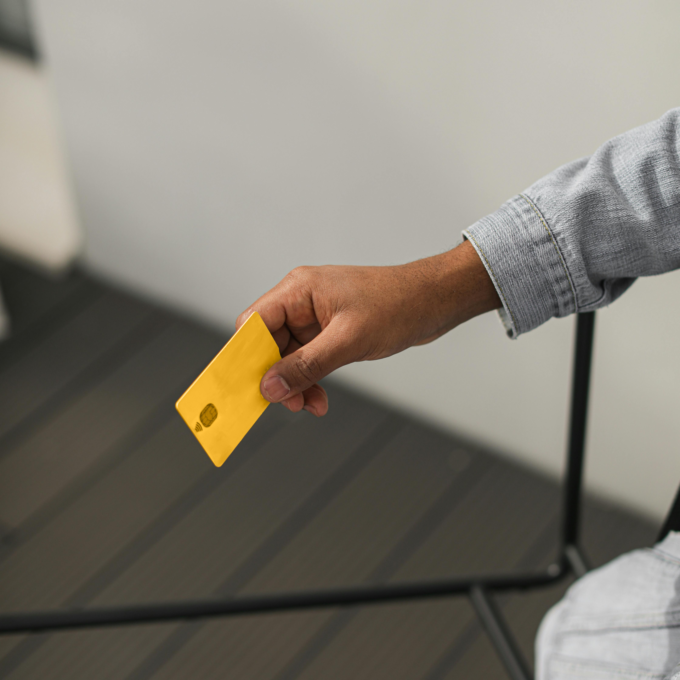I can’t pay off my credit card balance. What are my options?

Credit card debt is one of the most common types of consumer debt in Canada. With the cost of living increasing, more Canadians are turning to credit, with the average credit card balance just over $4,000. Relying on credit to make ends meet can lead to a growing balance and high-interest costs, making it one of the most expensive forms of debt to manage.
Understanding how credit cards work, your rights when receiving collection calls, and the debt relief options available to you can be a lot to navigate. Taking common questions from real clients, we’ve created a guide to help you understand all your options.
Why’s it so easy to get overwhelmed by credit card debt?
Accumulating credit card debt is easy. Your balance can quickly grow into an unmanageable amount because of a financial rough patch, job loss, emergency, or overspending. A large, unmanageable credit card balance can lead to the habit of making only the minimum monthly payment, resulting in high interest costs. What was once a financial tool to establish credit history and make certain transactions, can easily turn into a financial trap.
What happens if I can only make the minimum payment?
Let’s put minimum payments and interest costs into perspective. Say you have a $1,000 credit card balance that you make $10 minimum payments on at an interest rate of 18%. By only making the minimum payment, it will take you ten years to pay off your balance. This debt will cost you more money in the long run, as interest costs will leave you paying a total of $1,789. This example doesn’t factor in adding new charges to your balance, which would prolong repayment and increase interest costs.
What happens if I miss a credit card payment?
- One missed payment. If you miss one payment but have a good borrowing history, your creditors may send you a polite reminder letter.
- Two missed payments. You will likely receive a strongly worded letter and possibly a call from your creditor asking for payment.
- Three missed payments. Your creditor may enlist a collection agency to contact you for repayment. Collection agencies use a variety of tactics including frequent and pressuring phone calls.
- Court action. Creditors may obtain a court judgement ordering you to repay your debt. If you’re unable to agree on a repayment plan, you may experience wage garnishment or asset seizure.
- Damaged credit score. Your credit score can be negatively affected by a series of missed or late payments.
How could a Licensed Insolvency Trustee help?
The first step to taking control of your credit card debt is to consult with a debt professional. Based on your unique financial situation, all your debt relief options will be presented and described to you. This may include a consolidation loan to roll your debt into a single monthly payment at a lower interest rate or more formal solutions like a bankruptcy or proposal to creditors.
Can you file a consumer proposal for credit card debt?
A consumer proposal is a formal debt relief program administered by a Licensed Insolvency Trustee. This process allows you to consolidate your unsecured debt, including credit card debt, and only pay back a portion of the total amount you owe through fixed monthly payments over a maximum period of 5 years. Once completed, unpaid balances are written off by your creditors if they’ve agreed to the proposed terms.
A consumer proposal allows you to remain in control of your assets, so you don't need to worry about losing your home, car, investments, or property. Additionally, if you have collection agencies calling you about your credit card debts, filing a consumer proposal generates a stay of proceedings which stops all collection calls and wage garnishments.
Who is responsible for joint credit card debt?
A joint credit card remains the shared responsibility of both account holders until the debt is fully repaid and closed. A common misconception about joint debt is that you’re only responsible for your half, but this isn't the case. In the event of a divorce, both of you are still equally responsible for repaying the debt. If your spouse starts missing payments, creditors or collection agencies can come after you even if you didn’t incur any of the credit card debt. If one of you decides to file a bankruptcy or a consumer proposal, the other person will still be required to pay back the full amount of the joint debt. Essentially, if your name is on the agreement, you’re responsible for repaying the debt.
What does it mean if my credit card is written off?
There are a lot of misconceptions about what “writing off debt” means. When referring to a successful bankruptcy or consumer proposal, the portion of your debts that aren’t repaid are considered written off.
Outside of an insolvency filing, if a debt is written off by a creditor, it doesn’t negate your obligation to repay the debt. In this case, writing off a debt is a strategy by credit card companies to remove unpaid debts from their books. Often, these debts are sold to a collection agency, that will collect the debt from you, often with significant interest and fees added. Although the debt has been sold to a different company, they can still call you for repayment or take legal action.
Are you receiving collection calls for credit card debt? Learn how to deal with debt collectors and stop collection calls for good.
If you find yourself in a situation where you’re struggling to pay back your credit card debt, we’re here to help. At Grant Thornton, we offer judgment-free, consultations to help you find the best path to debt freedom. Call today at 1-844-4GT-DEBT and start your path to a brighter financial future!
Take the first step to debt freedom
Speak to one of our debt solutions professionals during a free, no-obligation consultation.
Related articles
Loading







